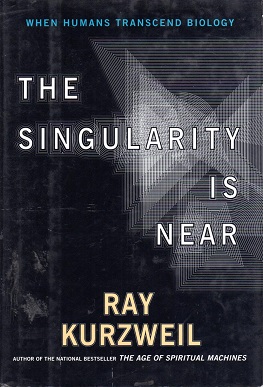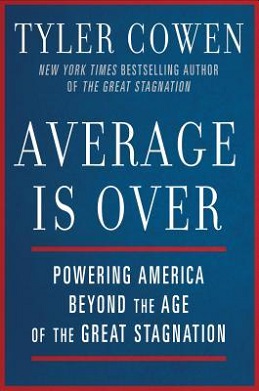
Raymond Kurzweil is an American computer scientist, author, entrepreneur, futurist, and inventor. He is involved in fields such as optical character recognition (OCR), text-to-speech synthesis, speech recognition technology and electronic keyboard instruments. He has written books on health technology, artificial intelligence (AI), transhumanism, the technological singularity, and futurism. Kurzweil is a public advocate for the futurist and transhumanist movements and gives public talks to share his optimistic outlook on life extension technologies and the future of nanotechnology, robotics, and biotechnology.

Goliath is a Philistine warrior in the Book of Samuel. Descriptions of Goliath's immense stature vary among biblical sources, with the Masoretic Text describing him as 9 feet 9 inches (2.97 m) tall. According to the text, Goliath issued a challenge to the Israelites, daring them to send forth a champion to engage him in single combat; he was ultimately defeated by the young shepherd David, employing a sling and stone as a weapon. The narrative signified King Saul's unfitness to rule, as Saul himself should have fought for Israel.
The technological singularity—or simply the singularity—is a hypothetical future point in time at which technological growth becomes uncontrollable and irreversible, resulting in unforeseeable consequences for human civilization. According to the most popular version of the singularity hypothesis, I. J. Good's intelligence explosion model of 1965, an upgradable intelligent agent could eventually enter a positive feedback loop of self-improvement cycles, each new and more intelligent generation appearing more and more rapidly, causing a rapid increase ("explosion") in intelligence which would ultimately result in a powerful superintelligence, qualitatively far surpassing all human intelligence.

Arianna Stassinopoulos Huffington is a Greek American author, syndicated columnist and businesswoman. She is a co-founder of The Huffington Post, the founder and CEO of Thrive Global, and the author of fifteen books. She has been named to Time magazine's list of the worlds 100 most influential people and the Forbes Most Powerful Women list.

Technological utopianism is any ideology based on the premise that advances in science and technology could and should bring about a utopia, or at least help to fulfill one or another utopian ideal.

Instapundit is a conservative blog maintained by Glenn Reynolds, a law professor at the University of Tennessee.

The International Academy of Digital Arts and Sciences (IADAS) is an organization that was founded in 1998 in New York City to recognize and acknowledge excellence in interactive content across emerging technologies. According to the organization, the academy was founded to help drive the creative, technical, and professional progress of the Internet and evolving forms of interactive and new media.

The Singularity Is Near: When Humans Transcend Biology is a 2005 non-fiction book about artificial intelligence and the future of humanity by inventor and futurist Ray Kurzweil. A sequel book, The Singularity Is Nearer, was released on June 25, 2024.

Malcolm Timothy Gladwell is a Canadian journalist, author, and public speaker. He has been a staff writer for The New Yorker since 1996. He has published seven books. He is also the host of the podcast Revisionist History and co-founder of the podcast company Pushkin Industries.

James Michael Surowiecki is an American journalist. He was a staff writer at The New Yorker, where he wrote a regular column on business and finance called "The Financial Page".

Glenn Harlan Reynolds is an American legal scholar who is the Beauchamp Brogan Distinguished Professor of Law at the University of Tennessee College of Law. He is known for his American politics blog, Instapundit.

Roberto Mangabeira Unger is a Brazilian philosopher, jurist and politician. His work is in the tradition of classical social theory and pragmatism, and is developed across many fields including legal theory, philosophy and religion, social and political theory, progressive alternatives, and economics. In natural philosophy he is known for The Singular Universe and the Reality of Time. In social theory he is known for Politics: A Work in Constructive Social Theory. In legal theory he was associated with the Critical Legal Studies movement, which helped disrupt the methodological consensus in American law schools. His political activity helped the transition to democracy in Brazil in the aftermath of the military regime, and culminated with his appointment as Brazil's Minister of Strategic Affairs in 2007 and again in 2015. His work is seen to offer a vision of humanity and a program to empower individuals and change institutions.
In futures studies and the history of technology, accelerating change is the observed exponential nature of the rate of technological change in recent history, which may suggest faster and more profound change in the future and may or may not be accompanied by equally profound social and cultural change.
Ariana is a feminine given name, popular in many languages. Arianna and Ariane are the two most common variations.
Radical democracy is a type of democracy that advocates the radical extension of equality and liberty. Radical democracy is concerned with a radical extension of equality and freedom, following the idea that democracy is an unfinished, inclusive, continuous and reflexive process.
The First Amendment Coalition (FAC) is a nonprofit public interest organization committed to freedom of speech, more open and accountable government, and public participation in civic affairs. Founded in 1988, FAC's activities include "test case" litigation, free legal consultations on First Amendment issues, educational programs, legislative oversight of bills in California affecting access to government and free speech, and public advocacy. In 2016, lawyer and journalist David Snyder became the organization's executive director.

Here Comes Everybody: The Power of Organizing Without Organizations is a book by Clay Shirky published by Penguin Press in 2008 on the effect of the Internet on modern group dynamics and organization. The author considers examples such as Wikipedia, MySpace, and other social media in his analysis. According to Shirky, the book is about "what happens when people are given the tools to do things together, without needing traditional organizational structures". The title of the work alludes to HCE, a recurring and central figure in James Joyce's Finnegans Wake and considers the impacts of self-organizing movements on culture, politics, and business.

The Empathic Civilization: The Race to Global Consciousness in a World in Crisis is a 2010 non-fiction book written by Jeremy Rifkin. It connects the evolution of communication and energy development in civilizations with psychological and economic development in humans. Rifkin considers the latest phase of communication and energy regimes—that of electronic telecommunications and fossil fuel extraction—as bringing people together on the nation-state level based on democratic capitalism, but at the same time creating global problems, like climate change, pandemics, and nuclear proliferation. Rifkin extrapolates the observed trend into the future, predicting that Internet and mobile technology along with small-scale renewable energy commercialization will create an era of distributed capitalism necessary to manage the new energy regime and a heightened global empathy that can help solve global problems.

Average Is Over: Powering America Beyond the Age of the Great Stagnation is a 2013 book by American economist Tyler Cowen laying out his vision for the future trajectory of the global economy. It is a sequel to Cowen's 2011 pamphlet The Great Stagnation, which argued that America had exhausted many of the low-hanging fruit that had powered its growth in the 19th and early 20th century.
Transhumanist politics constitutes a group of political ideologies that generally express the belief in improving human individuals through science and technology. Specific topics include space migration, and cryogenic suspension. It is considered the opposing ideal to the concept of bioconservatism, as Transhumanist politics argue for the use of all technology to enhance human individuals.
















